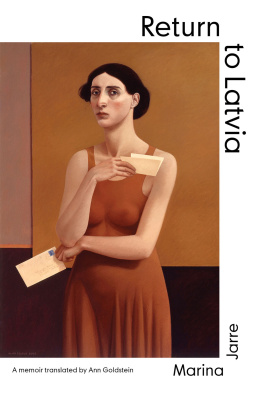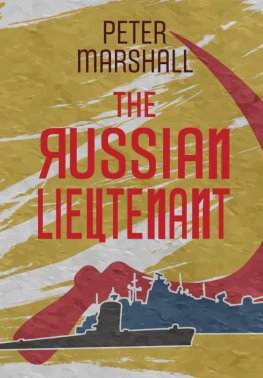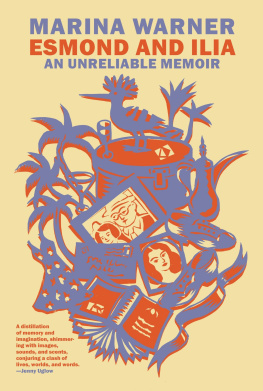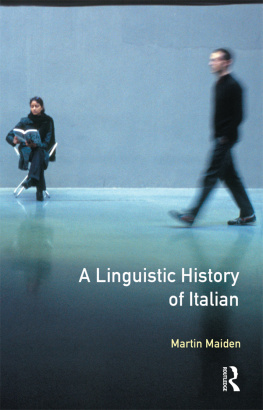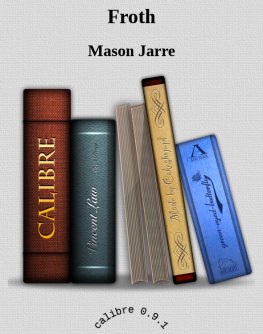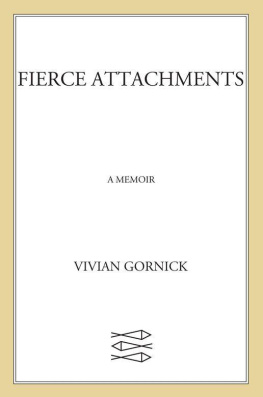


First published in Italian as I padri lontani
Copyright 2021 Giunti Editore S.p.A. / Bompiani, Firenze-Milano
www.giunti.it www.bompiani.it
Translation copyright 2021 Ann Goldstein
All rights reserved. Except for brief passages quoted in a newspaper, magazine, radio, television, or website review, no part of this book may be reproduced in any form or by any means, electronic or mechanical, including photocopying and recording, or by any information storage and retrieval system, without permission in writing from the publisher.
Library of Congress Cataloging-in-Publication Data
Jarre, Marina
[I padri lontani, English]
Distant Fathers/Marina Jarre; translation by Ann Goldstein.
p. cm.
ISBN 978-1-939931-94-8
Library of Congress Control Number 2020951502
ItalyNonfiction
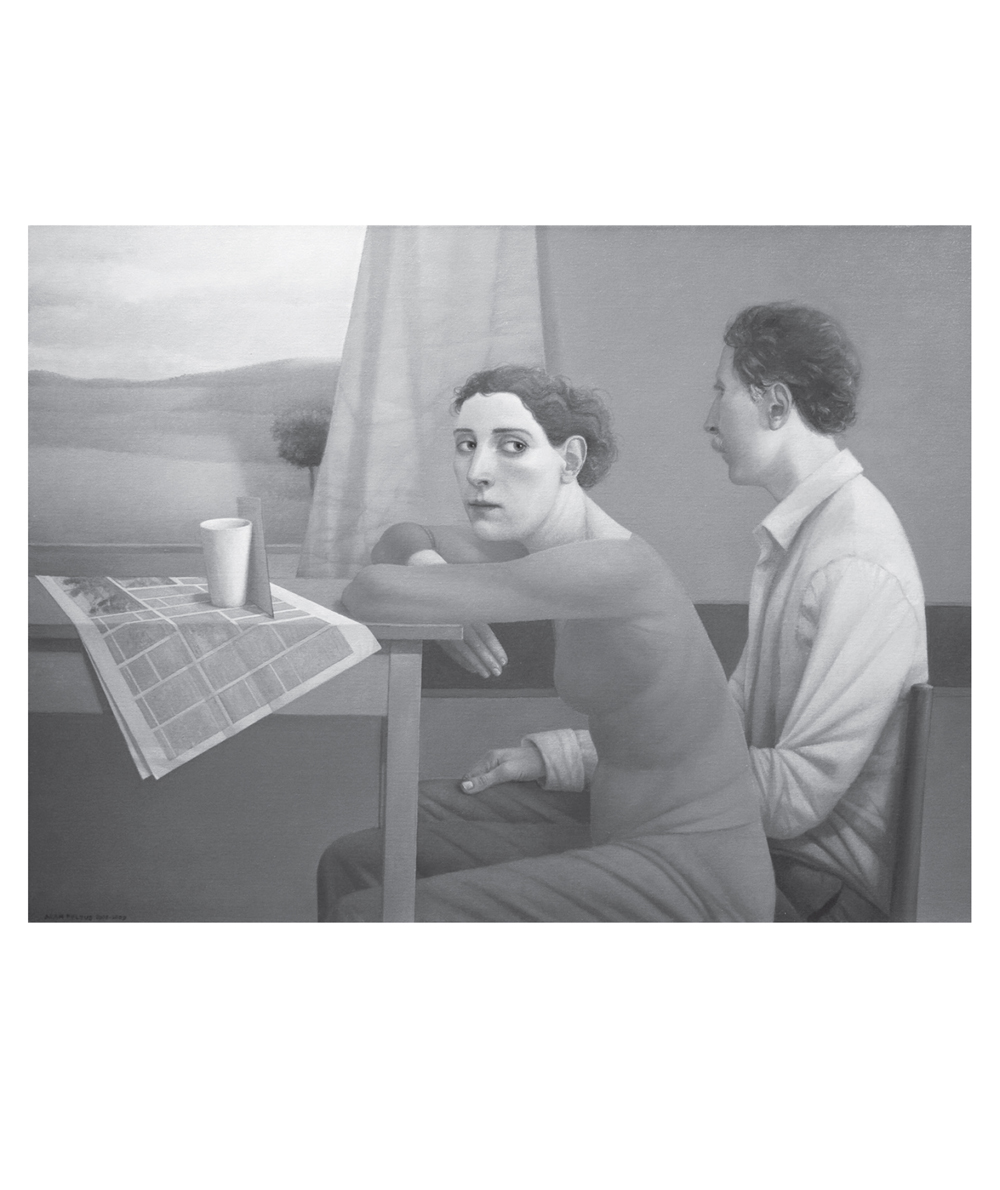
Praise for
DISTANT FATHERS
This is a beautifully ingenious memoir, saturated in the history of the European 20th century, and made all the more compelling by Ann Goldsteins luminous translation.
VIVIAN GORNICK,
author of Fierce Attachments and The Odd Woman and the City
Here is what it has felt like to be me, says every autobiography. The best, like Distant Fathers, go farther, plunging us into the stream of historyits ravages, its reprieves. Ann Goldsteins shimmering translation of Jarres prose delivers into English a European masterpiece.
BENJAMIN TAYLOR,
author of Here We Are and The Hue and Cry at Our House
Marina Jarres astonishing work reads like a dreamscape. Here, a Nabokovian memory mingles with meditations on homeland, womanhood, and sexuality. A book both sharp as a blade and glistening like a river in the sun.
LILA AZAM ZANGANEH,
author of The Enchanter: Nabokov and Happiness
Marina Jarre is an original, powerful and incisive writer... Her workstrue, small-scale, essential masterpieceshave found passionate readers and critics and have an indisputable place in Italian literature of the past fifty years.
CLAUDIO MAGRIS,
author of Danube and Blameless
Marina Jarres vibrant memoir is stunning in its intimacy, honesty, and finely observed detail.
HILMA WOLITZER,
author of An Available Man and The Doctors Daughter
A 2021 Must-Read in Translation
BOOK RIOT
A classic.
LA REPUBBLICA
Its an incalculable source of joy when... one of the greatest writers of the twentieth century can resume dialogue with the readers of today.
IL LIBRAIO
Table of Contents
Translators Note
M arina Jarres Distant Fathers tells the story of the authors life, but there is very little about the telling that is straightforward. The reader is thrown immediately into a city, Turin, that is not Jarres place of birth or origin, as a way into the sensation of disorientation and displacementthe feeling of not belongingthat perpetually haunted her. Its as if she wanted readers, too, to have a direct experience of dislocation, of not knowing where they are. Gradually, she begins to find her way around the city, and we followbut then suddenly she throws us off again by talking about the fantasies of a child running away from home: Italy was the country I would have liked to escape to. And then, after the long swirling sentences of a woman wandering around Turin, we are startled by a short factual statement: My sister and I were born in Riga.
This is Jarres method, to keep confounding us with sudden changes of pace and tone and abrupt shifts in subject that digress but always circle back, creating a kind of tightly controlled stream of consciousness.
Some facts: Jarres mother was Italian, from Torre Pellice, a town in the mountain valleys of Piedmont, southwest of Turin, and her father a Latvian-Russian Jew who was killed, along with the rest of his family, by the Nazis in 1941. Jarre (19252016) spent her first ten years in Riga, until her parents divorced and she was taken to live with her maternal grandmother in Torre Pellice. The first part of Distant Fathers recounts her childhood in Riga; the second part begins when she arrives at her grandmothers house, at the age of ten, and continues until she is twenty and a university student. The third part describes her marriage, children, work, growing old.
Jarres first language was German, which she spoke at home and at school in Riga. She learned Italian when she moved to Italy, and although it became her language, the language she chose to write in, she still, she observed, always had doubts about spelling and syntax, and was limited [... ] by a lack of inner connection to the technical means of the language. In an interview years later she said, I envy Italian writers because Italian is their language. Tellingly, it was in German that she discovered what makes good writing.
The books first section describes Jarre growing up in Latvia through a series of images, anecdotes, and sensations that create a picture of childhood and establish the outlines of family relationships. Timea recurrent themegenerally goes forward in this memoir, but not in a straight line. The language can be allusive, and we often dont know where we are: we gradually find out as details accumulate. For example, throughout the first section there are references to the move to Italy, but we dont really have the whole story until we get to the end of the section. At the same time images are vivid and precise: taken to visit a newborn, Jarre says: Theres a smell of hot chocolate. The infant has bare legs and feet. Hes fat and pale. Everyone says What a pretty baby, but I feel like throwing up, maybe because of the smell of hot chocolate, maybe because I saw a hair wrapped around the childs big toe. Images bleed into other images: this one, for example, leads her to describe the foods she doesnt like as a child, the things that make her throw up, and then the foods she likes. This first section is narrated mainly in the present tense, the tense of a childs point of view.
The second section moves into the past tense. Time entered my life, she writes of the move to Torre Pellice: she now has a pastthat is, childhood. Significantly, along with time, history enters her life: not only her own but the past of her Waldensian ancestors. The Waldensians, a small Protestant minority in Catholic Italy, were concentrated mainly in the Alpine valleys of Piedmont, west of Turin; Torre Pellice was the main town in the area. The movement arose in France in the twelfth century, its followers joined the Reformation in the sixteenth, and over the centuries they were persecuted, suppressed, and often forced into exile. In Italy the Waldensians preserved many elements of their French culture, including the language. Thus when Jarre is taken to live in Italy she abruptly abandons the German of Riga not only for Italian but for French as well, the language she will speak at home with her grandmother.
The change from German to Italian and from Latvia to Italy is encapsulated in the story of the Rmer: as a child in Latvia Jarre reads a book about the first-century general Arminius, who led the Germans in the battle of the Teutoburg forest against the wicked Rmer, whom she doesnt recognize as the Romans, in fact or in name, until years later, when, reading a Roman history book in German, she realizes that she is now on the other side.
Next page

